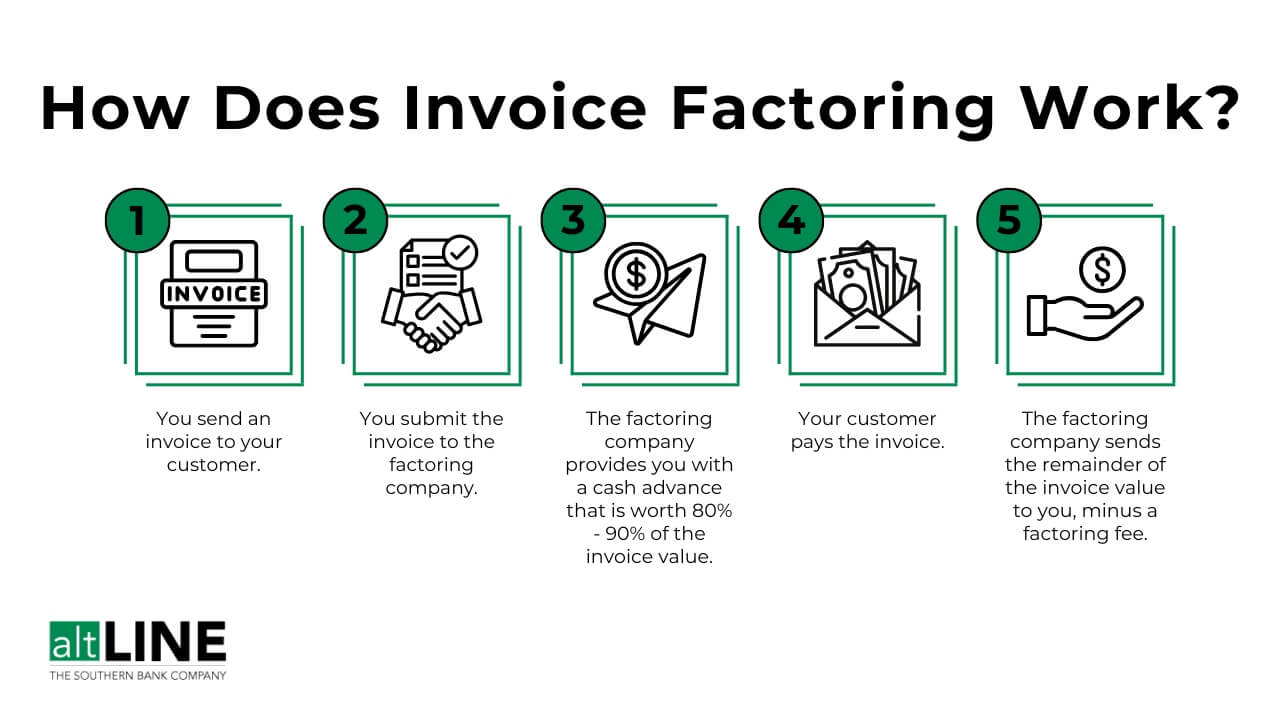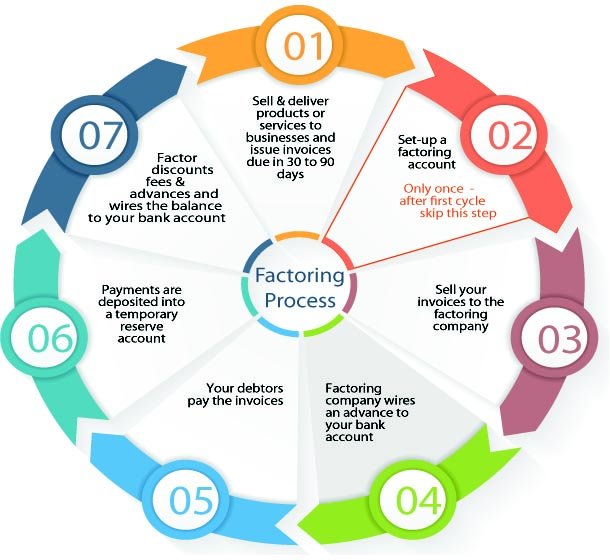Factoring finance involves a business selling its accounts receivable to a third party at a discount to meet its immediate cash needs. This allows the business to access cash quickly and efficiently.
By leveraging their unpaid invoices, businesses can secure funding without taking on additional debt. Factoring finance is an important tool in managing cash flow and improving operational working capital. With the help of factoring services, businesses can focus on their core operations while the factor takes care of receivables and collections.
This article explores the concept and benefits of factoring finance, as well as how it works and its significance in the financial services industry.

Credit: capitalplus.com
Introduction To Factoring Finance
Factoring finance is a type of debtor finance, where a business sells its accounts receivable to a third party at a discount. This allows businesses to obtain immediate cash, fulfilling their present financial needs. It is a vital solution for enhancing cash flow and managing working capital efficiently.
Definition And Explanation
Factoring finance is a valuable financial tool that allows businesses to improve their cash flow by selling their accounts receivable to a third party at a discount. This provides immediate access to funds that can be used for various business needs, such as paying suppliers, covering operating expenses, or investing in growth opportunities. Rather than waiting for customers to pay their invoices, businesses can turn their outstanding invoices into cash quickly. Factoring involves a simple process: a company sells its invoices to a factor, which is typically a specialized financial institution or a factoring company. The factor then assumes the responsibility of collecting payment from the customers. In exchange for the invoices, the business receives an upfront payment, typically ranging from 70% to 90% of the invoice value. The remaining percentage, known as the reserve, is paid to the business once payment is received from the customers. The factor earns a fee or interest based on the amount of the invoice and the length of time it takes to collect payment.Types Of Factoring Finance
There are several types of factoring finance available to businesses, each tailored to meet specific needs and circumstances. Here are some common types: 1. Recourse Factoring: In this type of factoring, the business remains responsible for any unpaid invoices or disputes. If the customer fails to pay, the business must buy back the invoice from the factor. 2. Non-Recourse Factoring: With non-recourse factoring, the factor assumes the risk of non-payment. If the customer fails to pay, the business is not liable and does not need to buy back the invoice. 3. Invoice Factoring: This is the most common type of factoring, where a business sells its outstanding invoices to a factor. The factor takes over the responsibility of collecting payment from customers. 4. Spot Factoring: Also known as single invoice factoring, spot factoring allows businesses to selectively factor individual invoices rather than all of their outstanding invoices. This gives businesses more flexibility in managing their cash flow. 5. Construction Factoring: Designed specifically for the construction industry, construction factoring provides cash advances based on certified progress billing or invoices. 6. Reverse Factoring: In this type of factoring, the factor pays the business upfront for the invoices, and the business agrees to pay the factor back on a predetermined schedule. This type of factoring is often used to extend payment terms to suppliers. Factoring finance offers businesses a flexible and efficient way to manage their cash flow and access immediate funds. By leveraging the value of their accounts receivable, businesses can meet their financial obligations and seize growth opportunities without waiting for customers to pay. Whether it’s recourse or non-recourse factoring, invoice factoring, or spot factoring, each type of factoring can be tailored to meet the unique needs of businesses in different industries.Benefits Of Factoring Finance
Factoring finance offers numerous benefits for businesses, providing them with improved cash flow and simplified accounts receivable management.
Improved Cash Flow
One of the key benefits of factoring finance is the improvement in cash flow for businesses. By selling their accounts receivable to a third party (known as a factor) at a discount, businesses can access immediate cash instead of waiting for their customers to make payments. This allows businesses to meet their present and immediate cash needs, enabling them to cover operational expenses, invest in growth opportunities, and manage their day-to-day financial requirements.
Simplified Accounts Receivable Management
Another advantage of factoring finance is simplified accounts receivable management. When a business factors its receivables, the responsibility of collecting payments from customers is transferred to the factor. This relieves the business of the time-consuming task of chasing overdue payments, allowing them to focus on core operations and customer satisfaction. The factor takes care of the accounts receivable management, including issuing statements, reminders, and collecting payments on behalf of the business.
In addition, factoring finance can also provide businesses with additional services such as credit checks on potential customers, which helps in making informed decisions about extending credit to new clients. This reduces the risk of non-payment and bad debt, ensuring a healthier financial position for the business.
Overall, factoring finance offers businesses a convenient and effective way to improve their cash flow and manage their accounts receivable efficiently. By unlocking the value of their unpaid invoices, businesses can access the funds they need to thrive and grow.
How Factoring Finance Works
Is important in financial services as it allows businesses to access immediate cash by selling their accounts receivable at a discount to a third party. This helps businesses meet their present cash needs and improve their cash flow. Factoring is a common solution used by businesses to manage their finances effectively.
The Process Of Factoring
Factoring is a financial transaction that allows businesses to sell their accounts receivable to a third party, known as a factor, at a discount. This process helps businesses meet their immediate cash needs and improve cash flow. Here’s how factoring works:- The business provides goods or services to its customers and issues an invoice with payment terms.
- Instead of waiting for the customer to pay the invoice, the business sells the invoice to a factor.
- The factor, after conducting due diligence on the creditworthiness of the customer, advances a percentage of the invoice amount to the business.
- The factor then takes over the collection of the invoice from the customer, assuming the credit risk.
- Once the customer pays the invoice in full, the factor deducts its fee and returns the remaining balance to the business.
Factors To Consider
Before deciding to use factoring finance, businesses should consider several factors:- Cost: Factoring fees can vary, so it’s important to understand the cost structure and compare it with other financing options.
- Creditworthiness: Factors assess the creditworthiness of the business’s customers to determine the risk involved in purchasing their invoices.
- Customer Relationships: Selling invoices to a factor means the factor will interact with the business’s customers for payment collection. Businesses need to consider the potential impact on their customer relationships.
- Flexibility: Different factors offer varying levels of flexibility in terms of the invoices they accept and the amount of funds they advance. Businesses should assess their specific needs and find a factor that aligns with their requirements.
- Long-Term Implications: Factoring can provide short-term cash flow solutions, but businesses should also consider the long-term implications. It’s crucial to evaluate the impact on profitability, cash flow, and overall financial stability.

Credit: altline.sobanco.com
Choosing A Factoring Finance Company
When it comes to choosing a factoring finance company, there are several key considerations that can significantly impact your decision. From evaluating the financial stability of the company to understanding their fee structure, selecting the right factoring finance partner is crucial to the success of your business.
Key Considerations
- Industry Experience: Look for a factoring finance company with experience in your industry as they will be more knowledgeable about the specific challenges and opportunities within your market.
- Customer Service: Consider the level of customer service provided, including responsiveness and support, as this can directly impact your experience and satisfaction.
- Transparent Fee Structure: Ensure the factoring company provides a clear and transparent fee structure that aligns with your financial goals and expectations.
- Financial Stability: Evaluate the financial stability and reputation of the factoring finance company to mitigate any potential risks associated with partnering with them.
Top Factoring Companies
| Company | Industry Focus | Customer Service |
|---|---|---|
| Riviera Finance | Various Industries | Highly Responsive |
| BlueVine | Small Businesses | Personalized Support |
| eCapital LLC | Transportation | Specialized Assistance |
Choosing the right factoring finance company can directly impact your business’s financial stability and growth. By carefully considering key factors such as industry experience, customer service, and transparent fee structures, you can make an informed decision that aligns with your business’s goals and needs.

Credit: gatewaycfs.com
Frequently Asked Questions On Factoring Finance
What Does Factoring Mean In Finance?
Factoring in finance refers to a business selling its accounts receivable (invoices) to a third party (factor) at a discounted rate. This helps the business meet immediate cash needs. Factoring improves cash flow and working capital without having to manage receivables and collections.
What Is Factoring Simple Terms?
Factoring is a financial transaction where a business sells its accounts receivable to a third party at a discount to meet immediate cash needs. It helps improve cash flow and working capital.
How Does Loan Factoring Work?
Loan factoring is a type of financing where businesses sell their unpaid customer invoices or future cash flow to get immediate cash. It improves cash flow and working capital without the hassle of managing receivables and collections. Factoring is an important financial service for businesses seeking quick cash infusion.
Why Factoring Is Important In Financial Services?
Factoring in financial services is important because it provides immediate cash flow by selling accounts receivable at a discount. This improves operational working capital and relieves businesses from managing receivables and payment collections.
Conclusion
Factoring finance offers businesses a solution to meet their immediate cash needs by selling accounts receivable at a discount. This financial transaction helps improve cash flow and operational working capital. With factoring services, businesses can avoid the hassle of managing receivables and collections, allowing them to focus on other aspects of their operations.
By utilizing factoring, companies can ensure a steady cash inflow and maintain financial stability.